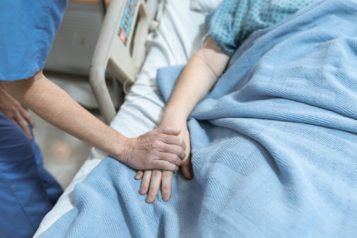Next steps for stroke services to be decided

Between June and September 2021, more than 2000 people shared their views on how they thought stroke services could be improved in the BNSSG area.
The consultation was set up by the Clinical Commissioning Group (CCG), who put forward a number of proposals, and asked people to share their views.
On 2nd November, the CCG’s Governing Body will hear the feedback and findings from the consultation. Members of the public are invited to attend the meeting, which starts at 2pm and will be held virtually. If you would like to attend, email bnssg.corporate@nhs.net.
The Governing Body can answer questions, but they must be submitted before the meeting. Try to keep your question succinct and relevant to healthcare. The CCG asks people not to raise personal or individual issues, as these cannot be appropriately answered in a public forum.
If you have a question, you can send it to bnssg.customerservice@nhs.net.
More information about the meeting and the results of the stroke consultation can be found on the CCG's website.
What changes to stroke services have the CCG proposed?
The first proposal was to have a single centre of excellence at Southmead Hospital to offer anyone suspected of having a stroke immediate hospital care (a Hyper-acute Stroke Unit).
- half of the people who responded supported this.
The second was to have 1 specialist stroke ward for ongoing hospital care (an Acute Stroke Unit) at Southmead Hospital. Under this proposal, the current specialist stroke ward at the Bristol Royal Infirmary (BRI) would close.
- half of the people who responded supported this. Half supported having 2 specialist stroke wards for ongoing hospital care, with the second at the BRI.
The third was to have 2 short stay stroke rehabilitation units (Stroke Subacute Rehabilitation Units), with one at Weston General Hospital in North Somerset and the second at a different location that could serve Bristol and South Gloucestershire.
- 65% of people supported having 3 or more stroke rehabilitation units, while 34% supported having 2.


